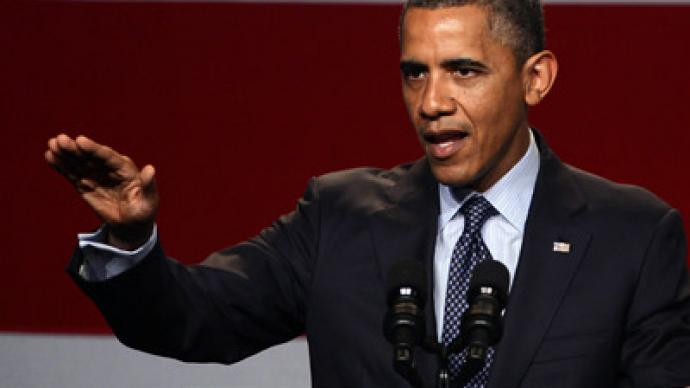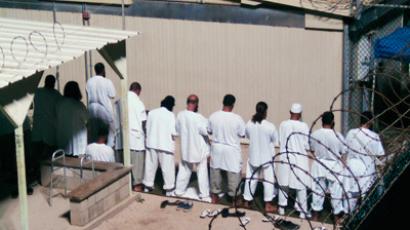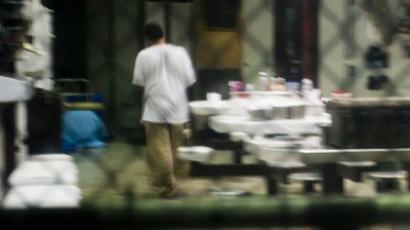NDAA unconstitutional: Federal judge bans Obama from indefinitely detaining Americans

Sorry, Mr. President. A US Federal judge has clarified a decision made last month with some news sure to upset the Obama administration: the White House cannot use the NDAA to indefinitely detain American citizens.
Judge Katherine B. Forrest has answered a request made by US President Barack Obama last month to more carefully explain a May 16 ruling made in a Southern District of New York courtroom regarding the National Defense Authorization Act. Clarifying the meaning behind her injunction, Judge Forrest confirms in an eight-page memorandum opinion this week that the NDAA’s controversial provision that permits indefinite detention cannot be used on any of America's own citizens.Last month Judge Forrest ruled in favor of a group of journalists and activists whom filed a suit challenging the constitutionality of Section 1021 of the NDAA, a defense spending bill signed into law by President Obama on New Year’s Eve. Specifically, Judge Forrest said in her injunction that the legislation contained elements that had a "chilling impact on First Amendment rights” and ruled that no, the government cannot imprison Americans over suspected ties with terrorists. "In the face of what could be indeterminate military detention, due process requires more,” said the judge.The Obama administration responded nine days later by asking Judge Forrest to reconsider her ruling, adding that, in the interim, the government would interpret the injunction to mean that only the few plaintiffs listed on the lawsuit would be excluded from indefinite detention. One of those named, journalist Chris Hedges, had previously said, “I have had dinner more times than I can count with people whom this country brands as terrorists … but that does not make me one.”Responding to the White House’s demands, Judge Forrest writes in a June 6 memo, “Put more bluntly, the May 16 order enjoined enforcement of Section 1021(b)(2) against anyone until further action by this, or a higher, court — or by Congress. This order should eliminate any doubt as to the May 16 order’s scope.” Judge Forrest does include in her ruling, however, that Americans can be indefinitely detained, but only providing that the government can link suspects directly to the September 11 terrorist attacks. Attorney Carl Meyer represented the plaintiffs in the lawsuit and told RT last month that he expected the Obama administration to challenge Judge Forrest’s ruling, but warned that “it may not be in their best interest because there are so many people from all sides of the political spectrum opposed to this law.”Previously, state lawmakers in both Utah and Virginia have proposed legislation that would negate provisions of the NDAA on a local level.














